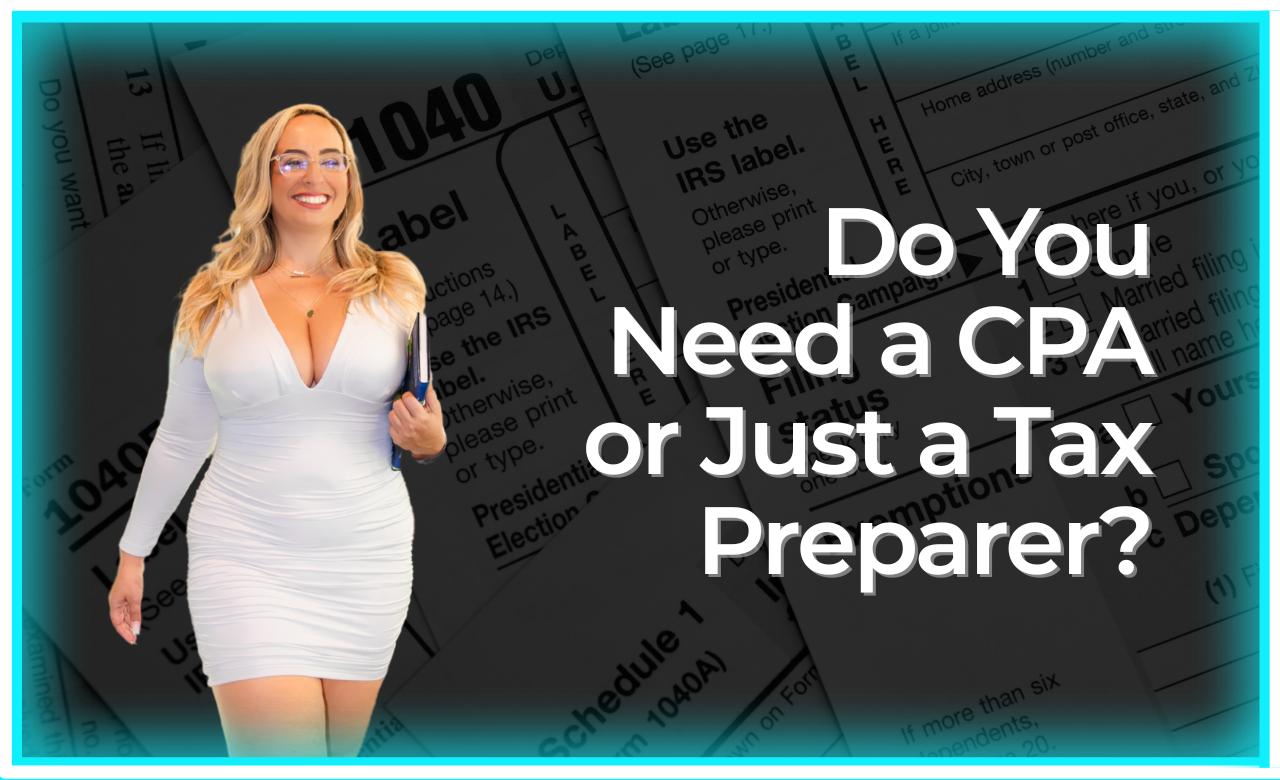Hi everyone! I’m Bette Hochberger, CPA, CGMA. When tax season rolls around (or you’re dealing with year-round business finances), you might start wondering: Should I hire a CPA or just go with a tax preparer? Aren’t they basically the same thing?
Not exactly. While both can help with taxes, there are key differences between a CPA (Certified Public Accountant) and a tax preparer—and knowing which one is right for you can make a big difference in your results and peace of mind.
What’s a Tax Preparer?
A tax preparer is anyone who helps individuals or businesses prepare and file tax returns. Some have formal training, while others rely on experience or software tools. Common types of preparers include:
- Enrolled Agents (EAs)
- Seasonal pros working for national chains
- Unlicensed preparers who may have limited oversight
They can be a solid option for simple, straightforward returns—especially if you’re just filing a W-2 with minimal deductions.
But keep in mind: not all preparers are licensed, and they may not have the training or authority to represent you if issues come up with the IRS.
What’s a CPA?
A CPA (Certified Public Accountant) is a licensed professional who has passed rigorous exams and met education, experience, and ethics requirements. CPAs are trained in tax strategy, financial analysis, accounting, and auditing.
A CPA doesn’t just file taxes—they look at the bigger picture. They help you:
- Plan and implement long-term strategies
- Understand how your business structure affects taxes
- Stay compliant with changing laws
- Represent you before the IRS if needed
In short: CPAs bring more to the table, especially for business owners, real estate investors, crypto traders, and high-income earners.
When Should You Choose a CPA?
Here’s when working with a CPA makes sense:
- You’re self-employed or run a business
- You want year-round planning, not just filing
- You’ve got investments, real estate, or crypto
- You want proactive strategies to lower your tax bill
- You need help with audits, amended returns, or IRS issues
When a Tax Preparer Might Be Enough
If you have a simple return—say, just one W-2, no kids, no deductions—a basic preparer could be fine. But as your financial life grows, so do the benefits of having a CPA in your corner.
Preparers can handle the basics. CPAs go deeper, offering strategic advice, expert planning, and support beyond just April 15th. If your financial life is getting more complex—or you want to be proactive instead of reactive—partnering with a CPA can be a smart long-term move.
Still unsure which one is right for you? Reach out—we’ll help guide you to the best fit for your needs.
As always, stay safe, and I’ll see you next time!










